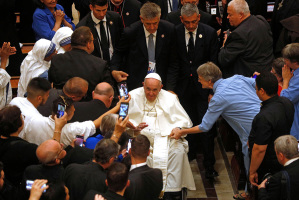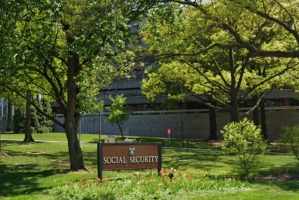Neil deGrasse Tyson Not Sure If God Exists, Questions Lack of Benevolence in Universe

Astrophysicist Neil deGrasse Tyson has said that while he is not sure if God exists, he finds the lack of benevolence in the universe as something that might question divine existence.
"I'm not here to tell people whether God exists or doesn't exist for them," Tyson said in a recent video for Tech Insider.
"I can say that if God is benevolent, and I look at the universe and see asteroids rendering life extinct, there's an absence of benevolence in the actual universe that I see. So that's always been a point of contention between philosophers and theologians," he added in the video posted on Monday.
Earlier in the video, the astrophysicist admitted that he has "no idea" about whether or not God exists, but said that no one can be certain either.
"If you were certain there's a God, you wouldn't have to call it faith. It'd be some other activity," he said.
Tyson also pointed out that it is an "intriguing sociological fact" that humans have believed in countless different gods since the dawn of the species.
"You can be certain within your own person, and that's a kind of personal truth," he said about faith.
"In a free, pluralistic society, your thoughts are protected, you think what you want — that's what it means to live in a free society."
Tyson often engages in topics of religion, science and philosophy in the public sphere, but he has contentiously rejected labels, and said he does not call himself an atheist.
Back in November he discussed and debated the compatibility of religion and science with popular Hillsong NYC Pastor Carl Lentz on a talk show.
In the segment on Comedy Central's "The Nightly Show," Tyson again argued that its hard to believe in a benevolent God, taking into account the chaotic state of the universe.
"I cannot look at the universe and say 'Yes, there is a God, and this God cares about my life.' The evidence does not support this," he asserted.
Lentz said that he has no issue between science and religion, and responded: "For me, I don't think that exploring any of this stuff is bad. I think it's going to lead you to acknowledge that something had to begin this, that there is something more. So I love it, I think that science is awesome. I don't think they are at war at all."
Other Christians, such as Creation Museum CEO Ken Ham, have argued that it is humans that are responsible for what is a "fallen" world.
Ham wrote in a 2014 Answers in Genesis blog post where he questioned the possibility of alien life in the universe:
"I do believe there can't be other intelligent beings in outer space because of the meaning of the Gospel. You see, the Bible makes it clear that Adam's sin affected the whole universe. This means that any aliens would also be affected by Adam's sin, but because they are not Adam's descendants, they can't have salvation," the creationist said.
"One day, the whole universe will be judged by fire, and there will be a new Heavens and Earth. God's Son stepped into history to be Jesus Christ, the 'Godman,' to be our relative, and to be the perfect sacrifice for sin — the Savior of mankind," he added.





























